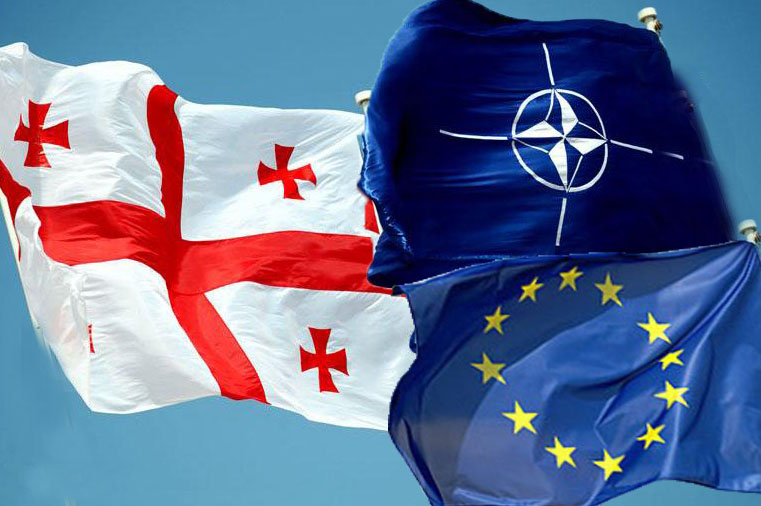


The number of supporters of Georgia’s Euro-Atlantic integration is declining, as evidenced by an opinion poll conducted by the NDI in the period between November 29 and December 19, 2017. According to the survey, 29% of respondents support joining the Eurasian Union and the number of those who support joining the EU is 60%. According to this data, after a similar public opinion survey published in May 2017 (illustrating April 2017 results), the number of respondents who are in favor of joining the European Union has decreased by 5%, while the number of respondent that support joining the Eurasian Union has grown by 8%. The survey also indicates that the number of supporters of the Government’s declared goal of joining the EU is 8% more than those who support the declared goal of joining NATO.
We believe that the change is very alarming, and it points at the ineffectiveness and often counter-productivity of the Georgian government’s strategic communication on European integration.
While the entire world realizes the risk of hybrid threats with the sole purpose of influencing public awareness and opinion, Georgia remains in the epicenter of these challenges. However, the government’s plan and mechanisms for strategic communication with the population at the national level and with European structures is ineffective and the institutional mechanisms for coordination of strategic communication issues between different branches and agencies of the government are incoherent.
Adoption of the government’s Communication Strategy on Georgia’s Membership to the EU and NATO for 2017-2020, drafted in partnership with CSOs was a positive development. However, its Action Alan as well as the Action Plan of the Communication and Information Strategy of the Government of Georgia in the sphere of EU Integration (2014-2017) failed to respond to hybrid challenges, particularly the increasing challenges of information warfare.
Activities provided in these fragmented strategies that lack cohesion has nothing to do with strategic communication. For instance, these strategies include activities like tree planting events, waste management trainings, campaign to prevent human trafficking, strengthening control over consumption of tobacco, raising public awareness about reforms in the field of accounting and audit, educational events for schoolchildren – “the hour of garden birds”, aerial photography of Vani and its surroundings, etc.
We believe that it is essential to establish institutional mechanisms for planning, implementation and coordination of strategic communication, and a political will to make these mechanisms work effectively. Involvement of all branches of government, civil society groups and expert communities in this process is important, because joint efforts at the national level are very important for successful NATO and EU membership policy and strategic communication. The Coalition for Euro-Atlantic Georgia is ready to cooperate with the government and international partners on these issues.
Signatory organizations:
1. Atlantic Council of Georgia
2. Georgian Young Lawyers’ Association
3. Transparency International Georgia
4. Civil Development Agency
5. Media Development Foundation
6. The Economic Policy Research Center
7. Georgian Democracy Initiative
8. UN Association of Georgia
9. Regional Centre for Strategic Studies
10. In Depth Reporting and Advocacy Center
11. Union Sapari
12. Georgian Institute of Politics
13. Voice from Georgia
14. Open Society Georgia Foundation
15. Georgian Foundation for Strategic and International Studies
ჯ. კახიძის #15, თბილისი, საქართველო, 0102 ; ტელ: (995 32) 95 23 53; ფაქსი: (995 32) 92 32 11; ელ-ფოსტა: gyla@gyla.ge; www.gyla.ge
15, J. Kakhidze str. 0102, Tbilisi, Georgia. Tel: (995 32) 95 23 53; Fax: (995 32) 92 32 11; E-mail: gyla@gyla.ge; www.gyla.ge